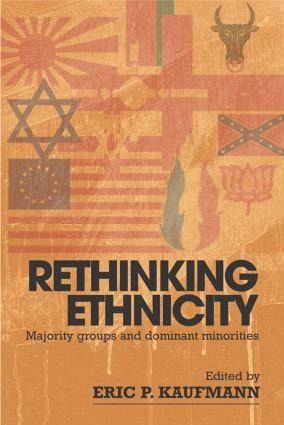
Rethinking Ethnicity
Majority Groups and Dominant Minorities
Herausgeber: Kaufmann, Eric P.
Versandkostenfrei!
Versandfertig in 1-2 Wochen
69,99 €
inkl. MwSt.
Weitere Ausgaben:

PAYBACK Punkte
35 °P sammeln!
How are dominant ethnic groups, whether majority groups or dominant minorities, responding to the pressures of a global era? Are such groups in decline or are they successfully negotiating or resisting the challenge of new global values? The impact of liberal globalization and multiculturalism means that nations are under pressure to transform their national identities from an ethnic to a civic mode. This has led, in many cases, to dominant ethnic decline, but also to its peripheral revival in the form of Far Right politics. At the same time, the growth of mass democracy and the decline of post-colonial and Cold War state unity in the developing world has opened the floodgates for assertions of ethnic dominance. This volume investigates both tendencies and argues forcefully for the importance of dominant ethnicity in the contemporary world. This volume begins with four conceptual chapters, rich in examples from the past and present, which outline the theoretical foundations of dominant ethnicity. Two further sections present detailed case studies exploring dominant ethnicity in decline, transition and resurgence in North America, the Middle East, Europe and Asia. This book will app
Globalization and migration are pressuring nations around the world to change their ethnic self-definition and to treasure diversity not homogeneity. This book explores the growing gap between modern nations and their dominant ethnic groups.














